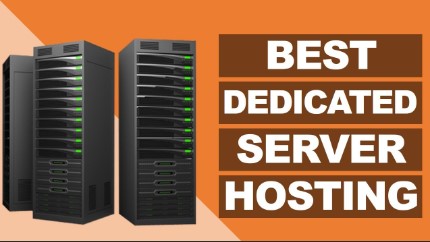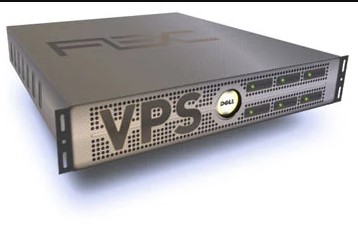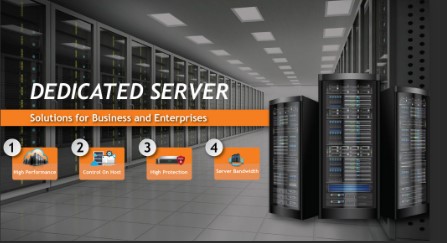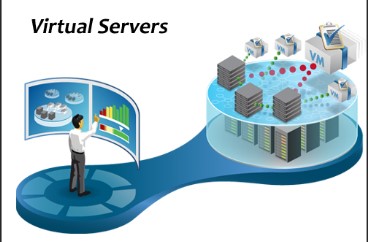Managed Web Server
Managed web servers represent a paradigm shift in the realm of digital infrastructure. These servers are meticulously curated by a team of professionals who ensure that all technical facets—ranging from server configuration to security protocols—are optimized and maintained.
Unlike their unmanaged counterparts, where the onus of upkeep falls squarely on the user, managed web servers provide a comprehensive suite of services. This allows businesses to focus on their core competencies without being bogged down by technical minutiae.
Managed web servers encompass a wide array of tasks, including software updates, performance monitoring, security management, and troubleshooting.
The Evolution of Web Hosting: From Self-Managed to Fully Managed Solutions
Web hosting has undergone a remarkable transformation over the past few decades. Initially, businesses had to rely on self-managed servers, requiring in-house expertise and significant resource allocation.
This model, while functional, was fraught with challenges, including constant maintenance and the risk of downtime. The advent of managed web servers heralded a new era, offering fully managed solutions that took the burden off businesses.
These managed services evolved from basic hosting solutions to sophisticated, fully integrated platforms that support a myriad of applications and services. The shift to managed hosting has allowed companies to leverage cutting-edge technology without the associated complexities, facilitating smoother operations and improved efficiency.
Key Differences Between Managed and Unmanaged Web Servers
The distinction between managed and unmanaged web servers lies in the level of service and support provided.
Unmanaged servers are akin to raw materials; they offer the foundational elements necessary for hosting but leave the implementation and maintenance entirely to the user. This includes server setup, software installation, security configurations, and ongoing maintenance.
Conversely, managed web servers offer a holistic service package. Providers handle all technical aspects, ensuring the server runs optimally.
This includes automated updates, regular backups, security monitoring, and 24/7 technical support. The choice between managed and unmanaged services typically hinges on the user’s technical proficiency and resource availability.
The Benefits of Using Managed Web Servers
Enhanced Security: How Managed Services Protect Your Website
Security is paramount in the digital age, where cyber threats are omnipresent. Managed web servers excel in providing enhanced security measures that protect your website from a myriad of threats.
Managed providers employ advanced security protocols, including firewalls, intrusion detection systems, and regular security audits.
They also ensure that software and security patches are promptly applied, mitigating vulnerabilities that could be exploited by malicious entities.
Additionally, managed services often include DDoS protection and SSL certificate management, further bolstering the security framework of your website.
Performance Optimization: Ensuring Speed and Reliability
In today’s fast-paced digital landscape, website performance is critical. Managed web servers are optimized for speed and reliability, ensuring that your site loads quickly and operates smoothly.
Managed service providers utilize a range of techniques to enhance performance, including load balancing, caching, and content delivery networks (CDNs).
These measures reduce latency and ensure consistent uptime, providing a seamless experience for users. Furthermore, regular performance monitoring allows providers to proactively address potential issues before they impact site functionality.
Hassle-Free Maintenance: Automatic Updates and Patch Management
One of the most significant advantages of managed web servers is the convenience of hassle-free maintenance. Managed services include automatic updates and patch management, ensuring that your server software is always up-to-date with the latest features and security enhancements.
This eliminates the need for manual interventions and reduces the risk of human error. Regular maintenance activities, such as server health checks and performance tuning, are also conducted by the provider, ensuring that your server remains in optimal condition.
Expert Support: Access to Professional Technical Assistance
Having access to professional technical support is invaluable, especially for businesses without dedicated IT departments. Managed web servers come with the assurance of expert assistance, available round-the-clock.
Whether you encounter a technical issue, need help with server configuration, or require guidance on optimizing your server environment, expert support teams are readily available to assist. This level of support ensures that any issues are resolved swiftly, minimizing downtime and disruptions.
Cost Efficiency: Saving Time and Money with Managed Services
Managed web servers offer significant cost efficiencies by reducing the need for in-house IT resources and minimizing downtime. While the upfront cost of managed services may be higher than unmanaged options, the long-term savings can be substantial.
Managed services eliminate the need for hiring specialized staff, investing in training, and purchasing additional software and hardware. Moreover, the proactive maintenance and security measures provided by managed services reduce the risk of costly cyberattacks and performance issues, ultimately saving time and money.
Key Features of Managed Web Servers
Robust Monitoring Tools: Keeping an Eye on Server Health
Effective server management begins with robust monitoring tools. Managed web servers come equipped with comprehensive monitoring solutions that track server health, performance metrics, and resource utilization in real-time tools that provide valuable insights into server operations, allowing providers to detect and address issues proactively. Monitoring tools can also alert administrators to potential problems, such as resource bottlenecks or unusual traffic patterns, enabling timely interventions to maintain optimal performance.
Backup and Disaster Recovery: Safeguarding Your Data
Data integrity is critical for any online presence. Managed web servers typically include robust backup and disaster recovery solutions to safeguard your data.
Regular, automated backups ensure that your data is consistently saved and can be restored in the event of data loss.
Disaster recovery plans are also in place to quickly restore services in the event of a catastrophic failure, ensuring business continuity and minimizing downtime.
Scalability Options: Growing Your Business Without Downtime
Scalability is a key advantage of managed web servers, allowing businesses to grow without experiencing downtime.
Managed services offer flexible scalability options, enabling you to easily increase or decrease resources based on demand.
Whether you’re experiencing a sudden surge in traffic or planning for long-term growth, managed providers can adjust server capacity to meet your needs, ensuring consistent performance and availability.
Control Panels and User Interfaces: Simplifying Server Management
User-friendly control panels and interfaces are a hallmark of managed web servers. These tools simplify server management by providing intuitive dashboards that allow users to manage their server environment easily.
From monitoring performance metrics to configuring server settings, control panels streamline administrative tasks, making server management accessible even to those with limited technical expertise.
Integrated Development Tools: Enhancing Web Development and Deployment
Managed web servers often come with integrated development tools that enhance web development and deployment processes.
These tools include support for popular programming languages, frameworks, and version control systems, enabling developers to build, test, and deploy applications efficiently.
Continuous integration and deployment (CI/CD) pipelines are also commonly supported, allowing for automated, seamless updates to applications and websites.
Choosing the Right Managed Web Server Provider
Evaluating Your Needs: What to Consider Before Choosing a Provider
Choosing the right managed web server provider requires careful evaluation of your specific needs. Consider factors such as the size and complexity of your website, expected traffic, security requirements, and budget.
Assess your technical capabilities and determine the level of support and customization you require. Understanding your unique needs will help you identify providers that offer services aligned with your business objectives.
Comparing Top Providers: Features, Pricing, and Performance
A thorough comparison of top-managed web server providers is essential to make an informed decision. Evaluate providers based on features, pricing, and performance. Consider the range of services offered, including security measures, backup solutions, and scalability options.
Review pricing structures to ensure they fit within your budget while providing the necessary features. Performance metrics, such as uptime guarantees and response times, are also critical factors to consider.
Customization and Flexibility: Ensuring the Service Fits Your Unique Requirements
Customization and flexibility are important when choosing a managed web server provider. Ensure that the provider offers services that can be tailored to your specific requirements.
This includes the ability to customize server configurations, select preferred development tools, and adjust resource allocations.
A flexible provider will work with you to create a solution that meets your unique needs and supports your business goals.
Service Level Agreements (SLAs): Understanding Uptime Guarantees and Support
Service Level Agreements (SLAs) are crucial documents that outline the level of service and support you can expect from a managed web server provider.
Review SLAs carefully to understand uptime guarantees, support response times, and the scope of services included.
Ensure that the provider’s SLAs align with your expectations and business requirements. A strong SLA proassuresat your provider is committed to delivering reliable, high-quality service.
Migrating to a Managed Web Server: A Step-by-Step Guide
Pre-Migration Checklist: Preparing for a Smooth Transition
Successful migration to a managed web server begins with thorough preparation. Create a pre-migration checklist that includes tasks such as auditing your current server environment, identifying critical data and applications, and planning for potential downtime.
Communicate with your managed service provider to understand their migration process and timelines. Proper preparation ensures a smooth transition with minimal disruption to your operations.
Data Transfer Methods: Moving Your Website and Applications
Data transfer is a critical component of the migration process. Managed web server providers offer various data transfer methods, including automated migration tools, manual transfers, and assistance from migration experts.
Choose a method that aligns with your technical capabilities and timeline. Ensure that all data, applications, and configurations are accurately transferred to the new server environment.
Testing and Validation: Ensuring Everything Works Perfectly Post-Migration
After transferring data and applications to the managed web server, thorough testing and validation are essential. Test all aspects of your website and applications to ensure they function correctly in the new environment.
Validate configurations, performance metrics, and security settings. Address any issues identified during testing to ensure a seamless post-migration experience.
Go Live: Final Steps to Make the Switch Seamless
The final steps of migration involve going live with your managed web server. Coordinate with your provider to schedule the switch, ensuring minimal downtime.
Monitor the server environment closely after going live to identify and address any issues promptly. Communicate with your users about the migration to manage expectations and provide support if needed.
Case Studies: Success Stories with Managed Web Servers
E-Commerce Triumphs: How Managed Services Boosted Online Stores
E-commerce businesses have experienced significant benefits from managed web servers. For instance, an online retailer struggling with slow load times and frequent downtime transitioned to a managed web server.
The result was a dramatic improvement in site performance, increased traffic, and higher conversion rates. Managed services provided the security, scalability, and support needed to handle peak shopping periods and enhance customer experience.
Small Business Growth: Scaling Up Without the Technical Headaches
Small businesses often lack the technical resources to manage web servers effectively. By switching to managed services, a small business can focus on growth without being bogged down by technical issues.
One small business owner reported that managed web servers allowed them to scale their operations seamlessly, improve site reliability, and reduce IT costs, enabling them to invest more in their core business activities.
Enterprise Solutions: Large-Scale Deployments and Their Outcomes
Enterprises with large-scale deployments benefit immensely from managed web servers. A multinational corporation, for example, used managed services to consolidate its disparate hosting environments into a unified, optimized platform.
This resulted in improved performance, streamlined management, and significant cost savings. The managed provider’s expertise ensured that the complex migration and integration processes were executed flawlessly.
Personal Blogs and Portfolios: Simplifying Web Management for Individuals
Individuals with personal blogs and portfolios also find value in managed web servers. An individual blogger, overwhelmed by the technical demands of maintaining their site, switched to a managed service.
This allowed them to focus on content creation while the provider handled all technical aspects, resulting in a more reliable and faster website.
Future Trends in Managed Web Servers
The Rise of AI and Automation in Server Management
AI and automation are revolutionizing server management. Managed web servers are increasingly incorporating AI-driven tools for predictive maintenance, performance optimization, and security threat detection.
Automation streamlines routine tasks, reducing human error and enhancing efficiency. These advancements allow managed service providers to offer even higher levels of service and reliability.
Enhanced Security Measures: Keeping Up with Evolving Threats
As cyber threats evolve, managed web servers are adopting enhanced security measures to stay ahead. Advanced encryption techniques, AI-powered threat detection, and comprehensive security frameworks are becoming standard.
Managed providers continuously update their security protocols to address new vulnerabilities, ensuring robust protection for their clients and applications.
Eco-Friendly Hosting Solutions: Green Servers and Sustainable Practices
Sustainability is gaining prominence in the tech industry. Managed web server providers are embracing eco-friendly hosting solutions, such as green servers powered by renewable energy and energy-efficient data centers.
These practices not only reduce the environmental impact but also appeal to environmentally conscious businesses and consumers.
The Impact of Edge Computing and IoT on Managed Web Services
Edge computing and the Internet of Things (IoT) are shaping the future of managed web services. Edge computing brings data processing closer to the source, reducing latency and improving performance.
Managed web servers are adapting to support edge computing environments and IoT applications, enabling faster, more responsive services for users.
Conclusion: Is a Managed Web Server Right for You?
Recap of Benefits and Features
Managed web servers offer a myriad of benefits, including enhanced security, optimized performance, hassle-free maintenance, expert support, and cost efficiency.
Key features such as robust monitoring tools, backup and disaster recovery, scalability options, user-friendly control panels, and integrated development tools further enhance their value.
Assessing Your Business Needs and Goals
When considering a managed web server, assess your business needs and goals. Consider factors such as your technical capabilities, budget, security requirements, and scalability needs.
Evaluate whether the benefits of managed services align with your objectives and whether they can support your long-term growth.
Making an Informed Decision: When to Choose Managed Over Unmanaged Solutions
Making an informed decision involves weighing the advantages of managed services against unmanaged solutions.
Managed web servers are ideal for businesses that lack technical expertise, require high levels of security and performance, and seek to minimize operational burdens. If these factors resonate with your needs, managed web servers are likely the right choice.
Final Thoughts and Next Steps for Implementing a Managed Web Server Solution
In conclusion, managed web servers provide a robust, reliable, and efficient solution for hosting needs. The next steps involve selecting the right provider, planning your migration, and leveraging the benefits of managed services to achieve your business goals.
Embrace the future with managed web servers and enjoy the peace of mind that comes with professional management and support.





